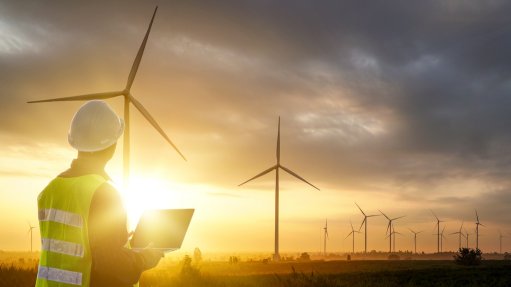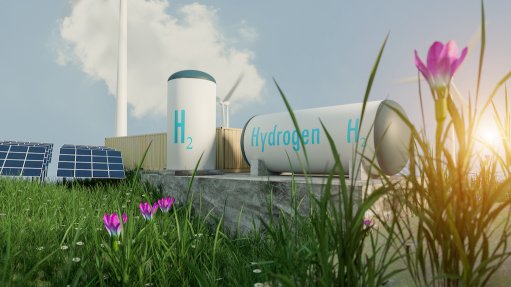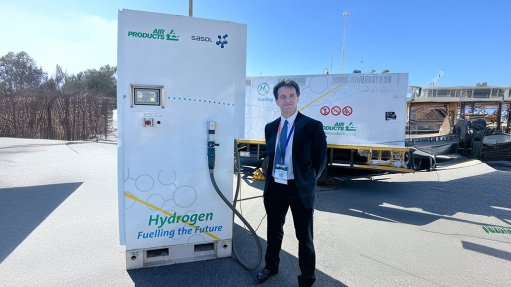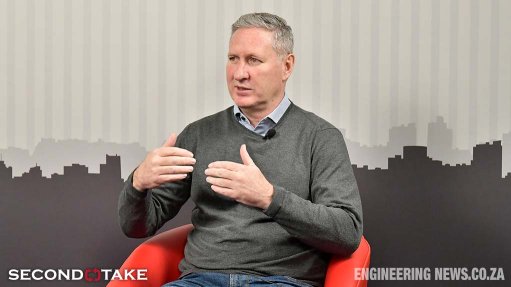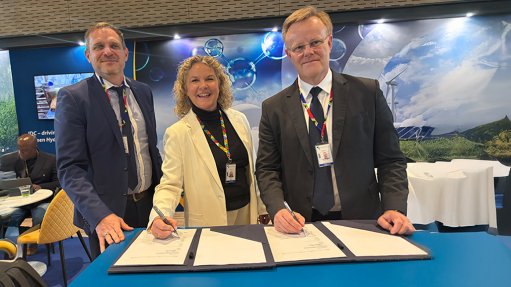Green hydrogen policies, standards and practices still to be ironed out
While international blocs and countries have made headway in defining green hydrogen standards, certifications and regulations, there remain significant gaps in terms of the readiness of countries worldwide to develop a global renewable hydrogen economy, panellists highlighted during a legal and policy framework session at the 2022 Hydrogen Economy Discussion earlier this week.
Standards were critically important to develop a global renewable green hydrogen economy, and international energy standards were necessary to harmonise systems, develop frameworks to comply with laws and technical standards and promote interoperability and the safety of citizens, said delegation of the European Union to South Africa trade policy officer Darryn Allan.
Standards also created a level playing field, provided a single market for businesses and increased consumer confidence, he added.
Further, certification is important to allow the market to grow. There is a need for robust certification systems to ensure green hydrogen claims are credible and harmonised across jurisdictions to enable trade.
However, there were gaps in South Africa's readiness to move to the production, export and use of green hydrogen but, even in the international landscape, everything was not yet in place, said economic and financial development consultancy RebelGroup Southern Africa senior consultant Laurens Cloete.
He was citing the findings of research conducted by the consultancy. RebelGroup, alongside German energy, hydrogen, mobility and sustainability consulting company LBST, assessed the readiness of South Africa for green hydrogen in terms of regulations, codes and standards.
"Standards and industrial codes form a type of soft law, as they are voluntary and can be developed quickly and as necessary in newly developed industries before regulations are developed," he said.
"The assessment indicated that, while South Africa can build hydrogen infrastructure, if the country wants to have a hydrogen economy, and not on an ad hoc basis, then regulations and standards are needed to facilitate and accelerate this.
“This would prevent each part of the industry from having to operate on a first-principles basis, as participants could instead more easily comply with a standard," said Cloete.
However, there are many standards and codes that South Africa can adopt. As a signatory to various United Nations agreements, it has access to various standards and the International Standards Organisation has also developed standards related to various aspects of hydrogen.
"A key question would be how South Africa would approach regulating hydrogen under law. For example, the South African Gas Act only regulates hydrocarbon gases and we must decide whether it is more suitable to amend the Gas Act, which raises concerns about bureaucratic challenges, or to develop a new set of laws," he noted.
"The industry is still changing and we should maintain an agile approach. While the right soft law approach, such as using standards, is useful, the industry needs regulations to reduce uncertainty," Cloete said.
Importantly, there is no green hydrogen market or economy yet. Many of the earliest hydrogen policies focused on energy availability and decarbonisation.
However, the frame of reference changed to focus more on recovery policies for the Covid-19-impacted period and now policies were focusing on energy security, intergovernmental organisation International Renewable Energy Agency policy programme officer Emanuele Bianco pointed out.
"Every time the frame of reference moved, there was a change in strategy. Therefore, we should consider rethinking strategies in terms of framing policies for hydrogen changes," he said.
For example, the UK developed an industrial decarbonisation strategy before developing its hydrogen strategy so that it was informed by the industrial decarbonisation strategy. This enabled the UK to change targets and policies to match their overall strategy for a much bigger impact than would have arisen from only a hydrogen sector strategy, said Bianco.
"While there is significant political support for hydrogen currently, political capital deployed to develop strategies should be targeted to generate strong signals for the industry and investors, and not just be a wish list. A policy stance focusing efforts on a specific aspect will also support complementary actions that support or fulfil the objectives of the overall strategy," he added.
Further, while many hydrogen policies are being developed according to market policies, there is also a need for industrial policies. These are a series of measures meant to change the industrial sector of a country and its socioeconomic impact.
"While there are questions about such policies picking winners or assisting uncompetitive participants, industrial policies have helped industrial sectors to grow over many years. For green hydrogen, it is likely that something like this will be needed," he noted.
Industrial policies must be aligned to decarbonisation strategies and needed to support green hydrogen objectives. They were needed to support the progress of the technology from niche to mainstream in terms of maturity so that it could be specified in a range of policies, such as hydrogen quotas or the minimum needs that needed to be met by hydrogen-consuming industries, such as vehicle manufacturers or steelmakers, as part of economies, Bianco said.
Comments
Announcements
What's On
Subscribe to improve your user experience...
Option 1 (equivalent of R125 a month):
Receive a weekly copy of Creamer Media's Engineering News & Mining Weekly magazine
(print copy for those in South Africa and e-magazine for those outside of South Africa)
Receive daily email newsletters
Access to full search results
Access archive of magazine back copies
Access to Projects in Progress
Access to ONE Research Report of your choice in PDF format
Option 2 (equivalent of R375 a month):
All benefits from Option 1
PLUS
Access to Creamer Media's Research Channel Africa for ALL Research Reports, in PDF format, on various industrial and mining sectors
including Electricity; Water; Energy Transition; Hydrogen; Roads, Rail and Ports; Coal; Gold; Platinum; Battery Metals; etc.
Already a subscriber?
Forgotten your password?
Receive weekly copy of Creamer Media's Engineering News & Mining Weekly magazine (print copy for those in South Africa and e-magazine for those outside of South Africa)
➕
Recieve daily email newsletters
➕
Access to full search results
➕
Access archive of magazine back copies
➕
Access to Projects in Progress
➕
Access to ONE Research Report of your choice in PDF format
RESEARCH CHANNEL AFRICA
R4500 (equivalent of R375 a month)
SUBSCRIBEAll benefits from Option 1
➕
Access to Creamer Media's Research Channel Africa for ALL Research Reports on various industrial and mining sectors, in PDF format, including on:
Electricity
➕
Water
➕
Energy Transition
➕
Hydrogen
➕
Roads, Rail and Ports
➕
Coal
➕
Gold
➕
Platinum
➕
Battery Metals
➕
etc.
Receive all benefits from Option 1 or Option 2 delivered to numerous people at your company
➕
Multiple User names and Passwords for simultaneous log-ins
➕
Intranet integration access to all in your organisation






